This year, Imagine Film Festival 2020 starts on 28 August with the online panel Can Sci-Fi Save the World? Dr. Etienne Augé – principal lecturer at Erasmus University Rotterdam who teaches communication, diplomacy, film studies and science fiction – is part of this talk about how stories of the future can help us shape that future. Modern Myths spoke to Dr. Augé about the panel, the larger issues in science fiction and which stories are key in learning to think differently about the way we live in the here and now. Read our Imagine Film Festival interview.
Also read our Imagine Film Festival 2020 special!
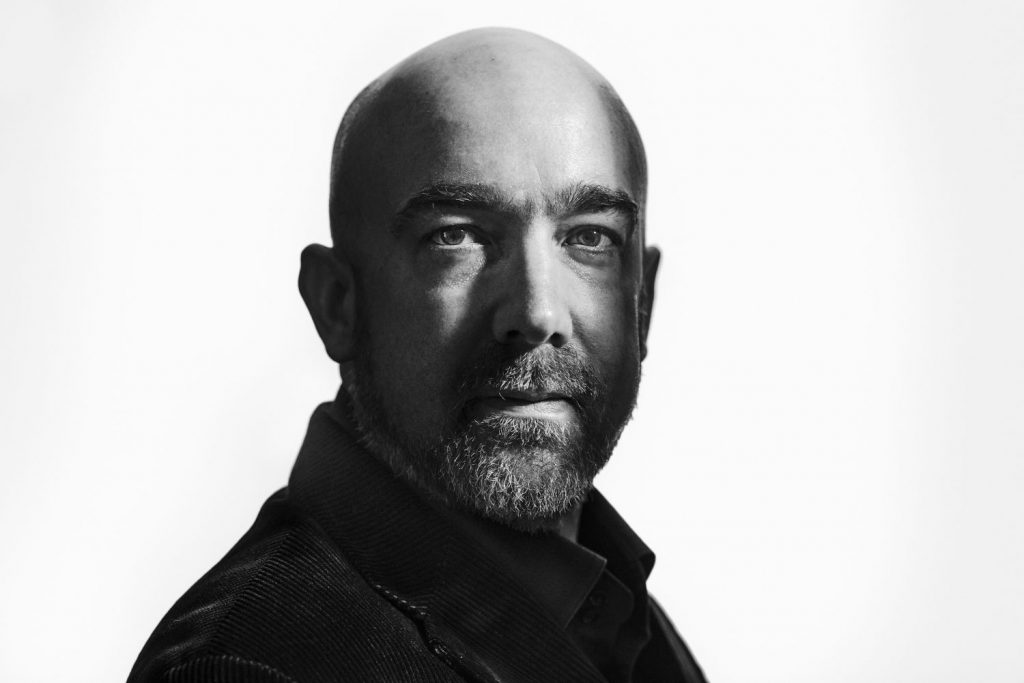
This year, “Nature Strikes Back!” at Imagine Film Festival. How will the human race survive in the years to come, now pollution and our growing population challenges the way we live on planet Earth? Some answers to this question may be found in science fiction. In the online panel Can Sci-Fi Save the World? professor of Film & Media Culture Patricia Pisters talks to dr. Etienne Augé (CHIFT), sci-fi criticus Paul Graham Raven (Climaginairies) and writer Rochita Ruiz (Other Futures) about how our stories of the future can help us change the way we’re going forward at this moment. Modern Myths spoke to dr. Augé about these topics.
- Etienne, at Imagine Film Festival you’re going to talk about science fiction. I looked at the bio on your personal website and found a doctorate in history, masters in film studies and studies in political science and cultural studies. You’ve lived and teach all over the world, write books and train diplomats. How did your life become such an adventure?
Dr. Etienne Augé: I have a doctorate in history, which was a way to summarize which I’m interested in, which is simply put: stories. My point was to learn as much as possible, so I switched from political science to film studies to cultural studies to history. I’ve lived in Lebanon, Slovakia, France and ended up in The Netherlands to further my understanding of stories. I very much like the name of your website, because I study and teach mythology and the most interesting modern mythology at the moment is superheroes. Which at the moment I work on with Barry W. Fitzgerald. If you look at what I do, especially my history in propaganda, science fiction and films, it looks as if it doesn’t fit together. But for me it’s a way to collect stories from the past, the present and the future to learn about them.
- What do those stories have in common? Mythology is from the distant past, but science fiction makes use of those to tell new stories.
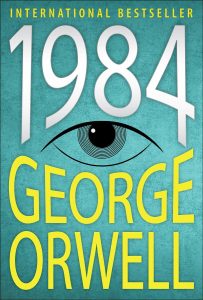
They’re both man-made stories. Even the Bible is written by men and starts with mythology. It doesn’t matter if the mythology is based on the past, or if it pretends to be from the past, like propaganda does. It has the power to inspire humans. That is important, stories can create hope. Some people get hope from the past, some are more inspired about what the future can be. I mostly look and live in the future, but as a historian I also look for the roots form the past, to understand how the past, present and future are connected.
In studying science fiction, the most interesting part is who gets to write about the future and through that shine a light on the past. The way you build a science fiction story is based on your present and your past. What they have in common is a way to give us direction. Think about the famous quote of George Orwell’s 1984: “Who controls the past controls the future, who controls the present controls the past”. For me this is one of the finest books I know and one of the best works in science fiction. Orwell understood those connections and that’s why I find it helpful to quote him.
- Is Orwell more relevant at the moment, because stories are now used and misused to create barriers between people? There’s fake news. true stories and made up stories are mixed up a lot.
We now have way more tools to control information and to filter it. Fake news doesn’t mean anything. It’s either disinformation or something people don’t agree upon, which makes it propaganda. If you look at history, centuries ago people couldn’t read. Now we can read, we have the internet, libraries, there are all kinds of sources for information. It gives you power. At the same time, there is now hyper information. We produce so much information, it can be hard to know where to find the right information. That’s the biggest problem. We produce a lot of information, which is not always knowledge. In September I’m part of a congress about propaganda an misinformation. This is the golden age of propaganda, there’s never been more. If you only Google an item and then go on Wikipedia, you’re in trouble. Learn how to use the tools at hand, train yourself to know where to get reliable information. There is information we can prove to be true, there’s information we can prove to be wrong and there are things in between. That last one’s about 80% of information available today. That is complicated to deal with. You have people shouting at Trump when he calls something fake news, but at the same time they’ll go to church to hear about a woman who has had intercourse with a god. It’s complicated not to hurt sensitivities.
- I’ll always find the ending of Life of Pi comforting, where you have a choice between cold, hard facts or a beautiful story. You can use stories to go forward with your life, even if they are based on mythology, folklore or fairy tales.
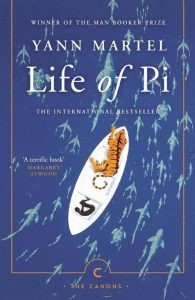
There can be a problem with that. Somebody who liked this kind of quote was Joseph Goebbels. His four volume diary is a gold mine to learn about propaganda. He knew that many of us would go for the beautiful lie, rather than the harsh facts. And if you prefer that, you give carte blanche to people who use stories to tell things which aren’t true. An example is Brexit. Nobody is going to benefit from it. As a scholar I’m stunned to see you can convince the English people to believe in an undemocratic regime. If you know the story about the British Empire and what they’ve done in the world, it’s amazing that they still believe that alone, they will be more powerful. Rationally, it makes no sense. But the story about Great Britain ruling the waves and being strong alone again, convinced people. Stories should inspire us, but we should keep in mind that if they go against the truth, against the fact, they can also be quite dangerous.
- The panel Can Sci-Fi Save the World? at Imagine Film Festival looks at how science fiction can teach us to look forward and use those stories to change our present. In these times of climate change and other challenges, what can science fiction teach us?
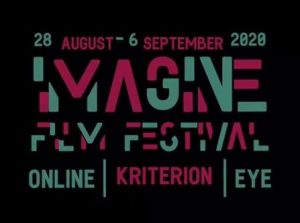
In Sci-Fi there are tons of scenarios about preventing. About Earth becoming too hot, about our planet becoming uninhabitable for human beings. The inventing aspect of science fiction in a scenario like this is: we’ve left Earth, or we died. Like in Blade Runner, my favourite movie of all time. In that movie, Earth has become uninhabitable, not because of global warming, but because of humans. We screwed up. The film was made in 1982, where we were already speaking about these problems. If you look at the history of science fiction, you’ll see that it has been warning us from the beginning, since at least the end of the 19th century. For me science fiction is inspiring and a great way to fight propaganda. In the panel I will speak about this, and advocate to use the right terminology. Don’t fight climate change, fight pollution. Use science fiction as a metaphor for the present. It tells stories about the future, to show us what doesn’t make sense in the present.
One of the problems with science fiction is that it’s mostly written by us, Western males. But that is changing. For instance, at the panel Other Futures is represented. I like the idea of change, of other voices in science fiction. You’ll get stories with different views of the future. That’s encouraging. If different stories about the future are told, maybe we can change the present with new ideas.
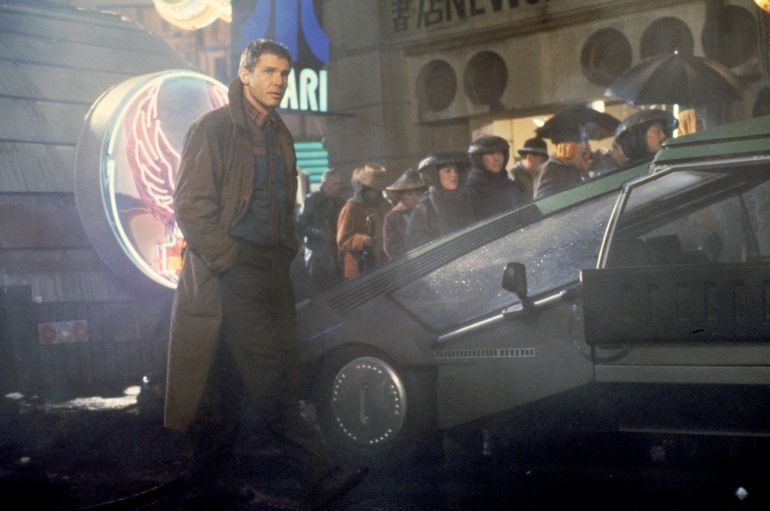
- Do you think humanity is able to become a global village and explore space, like in Star Trek?
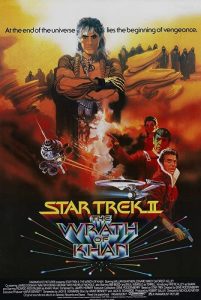
Well, if you don’t have a good plan for the future, people will turn to the past. Brexit is about the past, Boris Johnson is a man of the past. I love America, I’ve lived there, but Trump is also a man from the past. At the same time, Obama slashed the budget for NASA, while Trump is giving a lot of money to the space program and seems to have more of a vision for that compared to his predecessor. So it’s not black and white. It’s time for change.
Concerning Star Trek – and I hate myself for that – I’ve always found it to be very boring. The series is about people who solve problems with discussion, with polarizing. It’s very Dutch. It’s like “korfbal”, while I’m a rugby player. Korfbal is very boring to watch, but it’s a better sport than rugby if you look at the values. Rugby is thirty guys beating each other up, while korfbal is about respect and working together. The best science fiction is about crisis, about conflict. Star Trek is inspiring, it was revolutionary, the first interracial show on television in the sixties. There is a lot of ground breaking things about Star Trek, but I mostly found the stories to be not as appealing as other science fiction.
I’m also very careful about the idea of utopia. Most utopias turn to dystopias. Again, that’s what 1984 is about. Heaven can’t be the same for everyone. Watching soccer all day can be heaven for you, for others it’s a reason to escape heaven. Heaven is a concept which makes no sense. In propaganda we call it a “virtue word”, a term that everybody understands but nobody can define. I very much like the universe of Star Trek, it has the best design, it’s about dialog, about thinking. But it doesn’t appeal to me, because I’m looking for something else in science fiction. If you look at it scientifically, you’ll have to make a difference between what you like and what is good. It’s not about creating utopia, but to have a place where people can live together and respect each other. And that is creating Star Trek on Earth.
- You’ve mentioned Barry W. Fitzgerald, whom I have interviewed. We talked about Russia building a Crimson Dynamo armour, for America to build an Iron Man suit. Do we need this kind of competition? Do we need China and America fighting to be the first at Mars for resources, just so we can get there?
Personally, I’ll say no. I don’t like competition, having to always be number one. Looking at science fiction, all countries in the world want a slice of space. It might be because of competition, or because of fear. This is a cocktail of emotions, which is creating this space race. At the same time, it’s about adventure. It’s amazing to think we’re going to explore the cosmos. I love this need to discover, to explore, to need to know more.
- What stories in science fiction do you recommend we read to better ourselves?
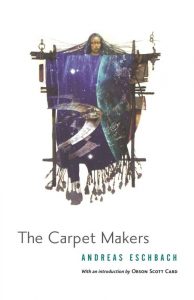
There is so much to recommend. It would depend on what you like. Again, a cocktail of personal tastes. I’ve already mentioned Blade Runner, but there are a lot movies from the 80’s which didn’t age so well. Like Runaway with Tom Selleck. I’ve started reading contemporary science fiction and read The Carpet Makers by Andreas Eschbach, a German author. It’s stunning, it mixes science fiction and fantasy. It’s amazing. At the moment, I’m working a lot with Chinese science fiction. China used to ban science fiction, because it was from old times, bourgeoise. But now there are rules for Chinese science fiction and how China should always look great, should always inspire scientists. It shows China leading the way into the future. This is not a gold mine for me, but a platinum one. The science fiction and propaganda are all rolled into one. It’s scary, it shows China using science fiction to further their propaganda. Look at The Wandering Earth, which is on Netflix, or Last Sunrise which is part of Imagine Film Festival 2020. There’s this great idea in The Wandering Earth: to solve global warming, you’ll take Earth further away from the sun. The movie is not that good, but China learns fast.
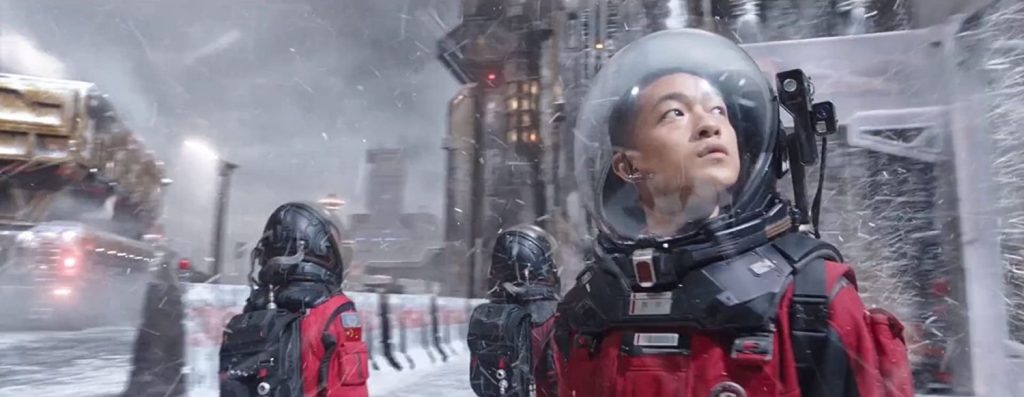
Everything I use in and around my home is made in China. As much as we’re driven by American future, we may have a competing force who’ll also fight for the future. That’s why in the Netherlands I’ll teach to write your own science fiction. Because if you don’t, you’ll have somebody else’s future. I’ll try to give students all the tools to make a better future, a more inclusive one. We need to do this, to have the future we want.
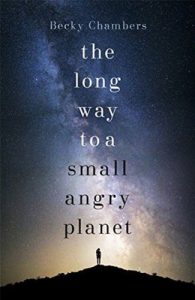
Another recommendation is an Australian movie called Predestination, which is based on a short story by Robert Heinlein. It is science fiction which makes your brain work, to provoke and trick you. I also like the work of Becky Chambers, for instance The Long Way to a Small, Angry Planet. This is a story about different creatures on a space ship. Nothing much is happening. It’s about people exploring their feelings. It works very well. It shows a different perspective. And I love Black Panther. That movie is beautifully shot, it’s very interesting and great science fiction. It inspires, it shows Africa being a continent for the 21st or 22nd century. I work a lot with diplomats, I train them. I believe Africa is the country of the coming years. Wakanda doesn’t exist of course, but everybody can believe in it.
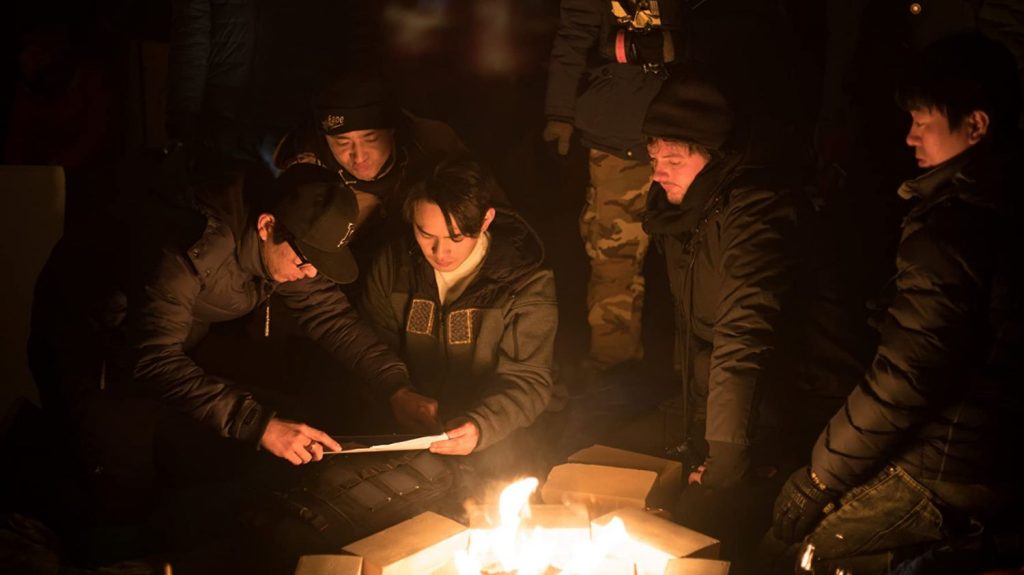
- In science fiction, there’s also the outside force. The big asteroid in Armageddon, the alien race in Independence Day, the squid in Watchmen. Even global warming can be seen as such a force. How will the human race react to such an outside threat?
You mention some of the finest movies in the history of science fiction. Armageddon and Independence Day are very enjoyable, but also very 90’s. In my science fiction course, I have a section on “the others”. How we perceive aliens in general. It’s interesting to look at Steven Spielberg. He sees the others, the aliens, as something positive. Take Close Encounters of the Third Kind and E.T. If you look at Independence Day, the aliens are bad. What do they want? We don’t know, but we have to kill them. You have to look at the differences, how the filmmaker perceives the others. Independence Day is enjoyable, but in the end the Americans will save the day. We are united against the aliens, but behind the Americans. You see that a lot in science fiction. If you look at the world today, that’s also the case. This is a metaphor for America leading the world. With the biggest defence budget, the best higher education, etc. It’s important to have a balance of power. China and Russia balance America to some extent.
But I don’t recommend Independence Day as an example for the future. There are more inspiring stories, like 2001: A Space Odyssey. In Independence Day the aliens come and beat us. We don’t know why, but we’ll fight back and destroy them. There’s no dialogue between them and us. It’s a depressive movie, advocating violence. But let’s not mention Armageddon. That movie is ridiculous; instead of training astronauts in drilling, they take a bunch of guys who are good at drilling and make them astronauts. Ridiculous. But I like Bruce Willis, so I’ve watched it and although it isn’t very good, I’m enjoying it.
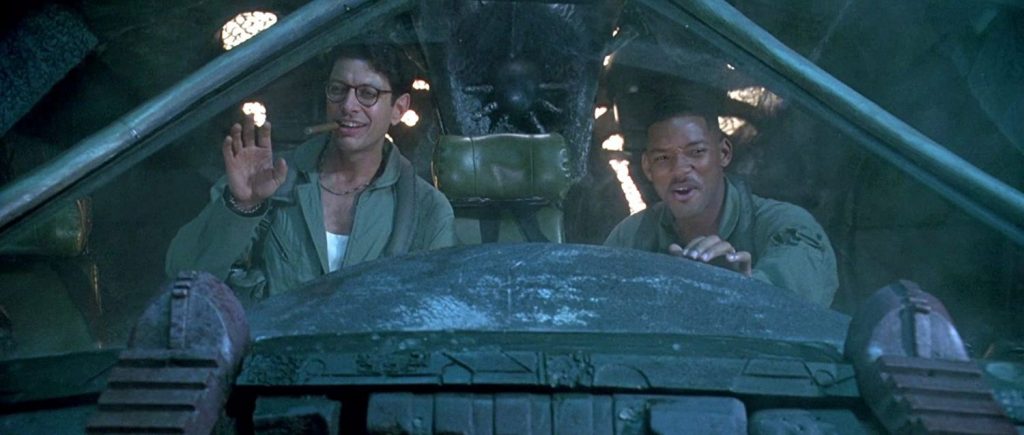
- Let’s close of with your personal view of the future. Do you look at the future with fear, with hope or a healthy combination of both?
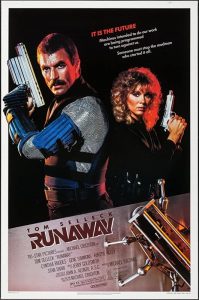
I just became a father for the second time. I have a daughter of four months old. If I would look at the future with fear, I wouldn’t have children. Of course I have hope. I’m not an optimistic, I see a lot of threats. I see today is not a good world for girls. In some countries, they’re second rate citizens. Even in the Netherlands, being a woman is still not as good as being a man. But working in the Netherlands, I’m becoming more Dutch and seeing problems as opportunities too. Why not use problems to make something good come out of it? Like now with COVID-19, it’s horrible for many people. But all of a sudden we needed to think of different ways of teaching, of researching. And I like that. We’re forced to change.
Change is something we have to get used too. In the future, many things have to be changed for the better. I would like to see more leaders like the ones in Finland, or New Zealand, who are more compassionate, more different, more diverse. To return to Star Trek, which is a paradox, I love it, because it’s from the 60’s and shows a community including different people, different races, different genders. As much as I don’t enjoy watching it, I think this is a great example of what the future should be like.
But it’s not about me being optimistic or pessimistic. My job is to analyse the present and see possible threats. I teach about fear. Not to scare you, but to make you aware. You’re supposed to know, so you can make educated decisions. We’re not in the same boat, no one is, but we’re on the same ocean. Maybe the best way is to unite, or maybe it is to part ways, or to go in the same direction. But I’m happy to have this conversation. It’s wonderful to have people listen to you. And through these talks, being on a panel, we can discuss our fears and come together as a people, as a government, or as corporations. We have to remember that maybe as an individual citizen you’re not that important, but all together, we are the world, we are the future. It may sound like a Michael Jackson song, but it’s the truth.
I know it’s a comforting way to think about there being evil in the world, Trump being evil, China begin evil, but that is just not true. Literature and science fiction is wonderful, it teaches us about the world, about compassion, about feelings and emotions and humanity. I advocate reading books, reading science fiction. It confronts you with new ideas, it helps you understand your world better. So there are no future nightmares, but better stories for our future, which I hope for.
- Thank you so much. We’ll tune in at the Imagine Film Festival panel and will see you there.
It was my pleasure, see you at the festival.
The Can Sci-Fi Save the World? panel is part of Imagine Film Festival and will be held online on 28 August from 19:30 – 21:00. Get your tickets on the Can Sci-Fi Save the World? page. There’s no charge!

Imagine Film Festival interview:
Can Sci-Fi Save the World?
Fantasy, science fiction and horror: the largest Dutch fantastic film festival – Imagine Film Festival 2020 – this year takes place in a hybrid form at Kriterion, EYE Amsterdam and online from 28 August – 6 September. The festival shows original and quirky genre-films. This year you’ll find 28 features, short films, showcases of Dutch projects and online panels. Read our reviews of these movies and shorts in our Imagine Film Festival 2020 special!
Do you want to read more interviews like the Imagine Film Festival interview with Etienne F. Augé? Go to our section Interviews!
© 2019-2024 Modern Myths / Blade Runner © Warner Bros, Black Panter © Disney, Independence Day © 20th Century Fox, Last Sunrise © Take Shobo Company, Runaway © Warner Bros, Star Trek: The Wrath of Khan © Universal Pictures, The Wandering Earth © Netflix
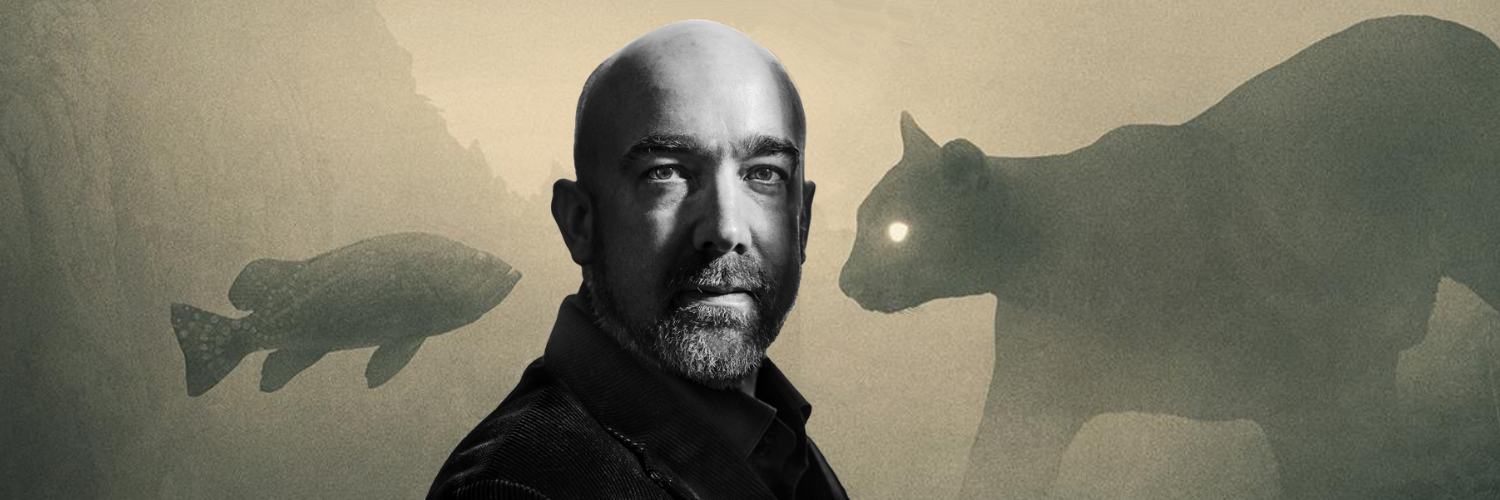


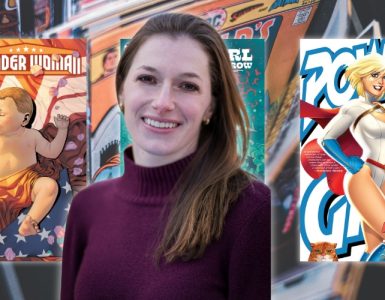



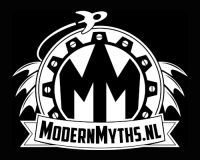
Reactie plaatsen